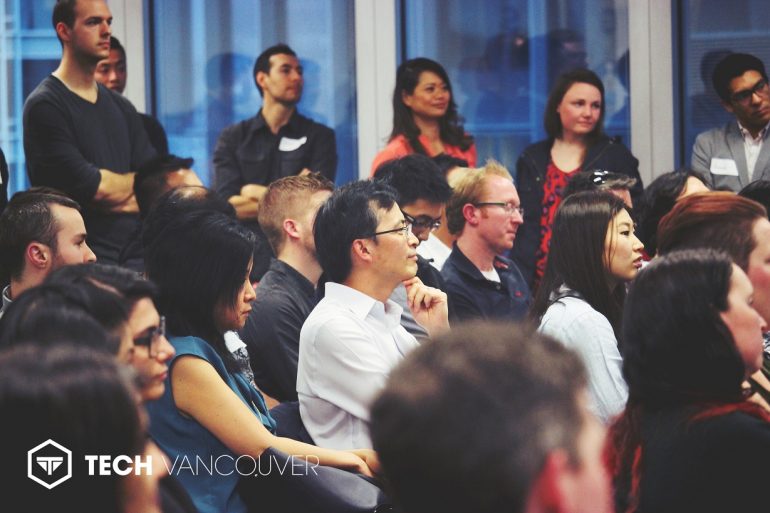Vancouver’s tech community was in full force for the third #TechVAN event, hosted at the Rise HQ in downtown Vancouver. Wisam Abdulla, CEO and co-founder of software startup Rise, was the first to take the stage, where he discussed how millennials are changing the business landscape.
“A lot of what we’re seeing today, the shifting landscapes, the disruption of old school industry is being driven by something else, and I would say it is being driven by millennials,” he said. “Firstly, millennials are driving who gets the best people — so they are driving which companies are getting the best talent, and in order to win in any business you need the best talent. Secondly, millennials are controlling which companies get the dollars. By 2025, 75 percent of the workforce is going to be millennials, and with 75 percent of the workforce making 75 percent of the money that means the world is changing in their direction.”
Millennials have a different sense of purpose to their work than past generations, Abdulla notes.
“I always say the people who work at Rise are volunteers. They can go anywhere they want, and probably make more money. But the reason they are here is their purpose and their ability to change the world, and that gives meaning to their work.”
Next up was Jack Newton from Clio, a cloud-based law practice management software, who talked about the best way to test out a new startup idea. He said that testing a product on as many people as possible, with the goal of getting more feedback, isn’t always the best approach.
“You need culture because when the going gets tough, the tough gets going, and when the tough gets going you need a reason to go.”
“Unless you are launching a product that has a bootstrapping aspect to it, like a social network or a marketplace, that is the exact wrong thing to do,” said Newton, who suggested that startups adopt “highly-curated” beta where they select customers instead of an open beta. “What you should be doing is trying to find a small handful, maybe even just one or two representative customers that you can really put your arms around and truly understand the needs of.”
An agile process is important — but a successful venture also needs to integrate a sense of purpose into every aspect of its business, argued John Bromley from Chimp, an online charitable marketplace.
“When I think of all the people who cope with all the difficulties and deal with the feedback and the constant failure in the entrepreneurial scene, it comes down to purpose. Whether you’re an employee or running the show, if people have purpose, they are able to persevere because they are doing it for reasons that go well beyond just the task at hand,” said Bromley. “Know your purpose, link your personal purpose with your organizational purpose at the company that you work for, and ultimately get your paths aligned. And if there is no alignment, talk to someone and maybe you can find a better role. Even if you have to leave, it is better for you and much better for your company.”
Beyond purpose and processes lies the crossroads of company culture, an area that Tea Nicola from WealthBar elaborated on from personal experience. “What makes a company culture, according to our employees, is a set of common values that drive your business, clients, and employees all together.”
For instance, transparency is a very important value to WealthBar, and something they hold in high regard to maintain a strong culture. “Currently, everyone has complete transparency to everything in the company expect salaries, and I am actually working towards opening up salaries and equalizing things out so everybody will know where they can go,” said Nicola.
Nicola succinctly described how culture is key to getting through the highs and lows of running a startup. “You need culture because when the going gets tough, the tough gets going, and when the tough gets going you need a reason to go. So when you have something other than the success of your company that drives your employees, you are able to keep going and pull through.”


